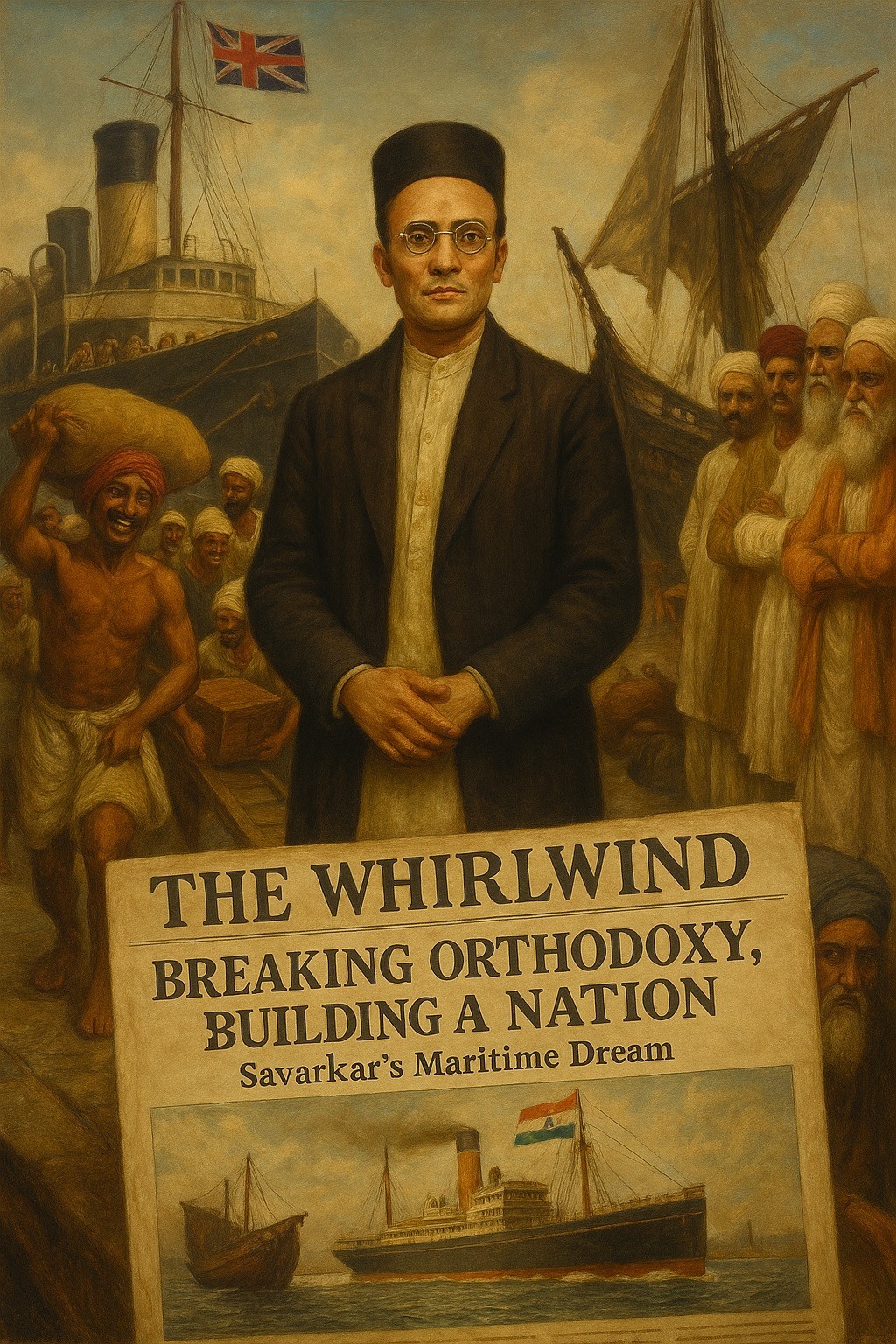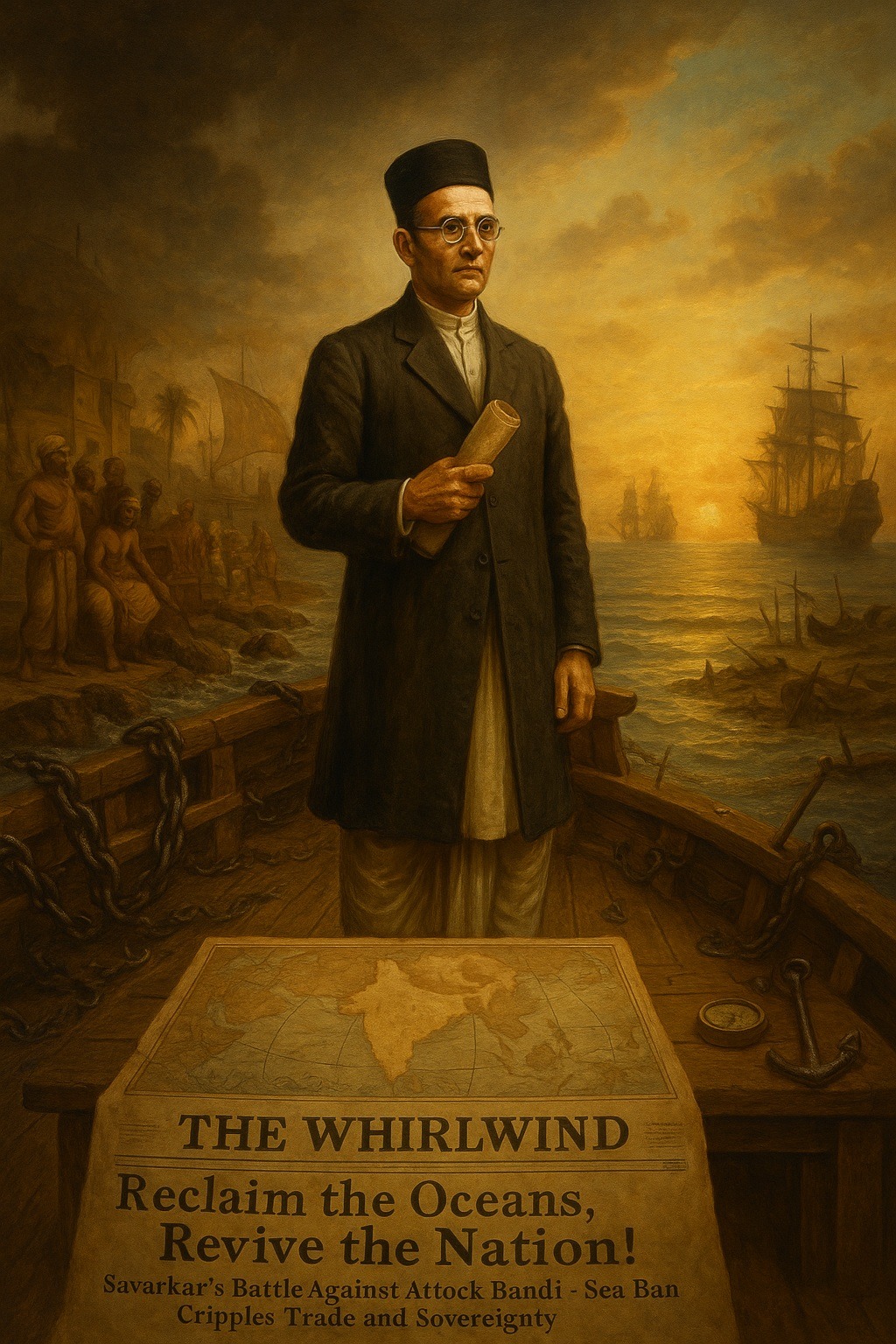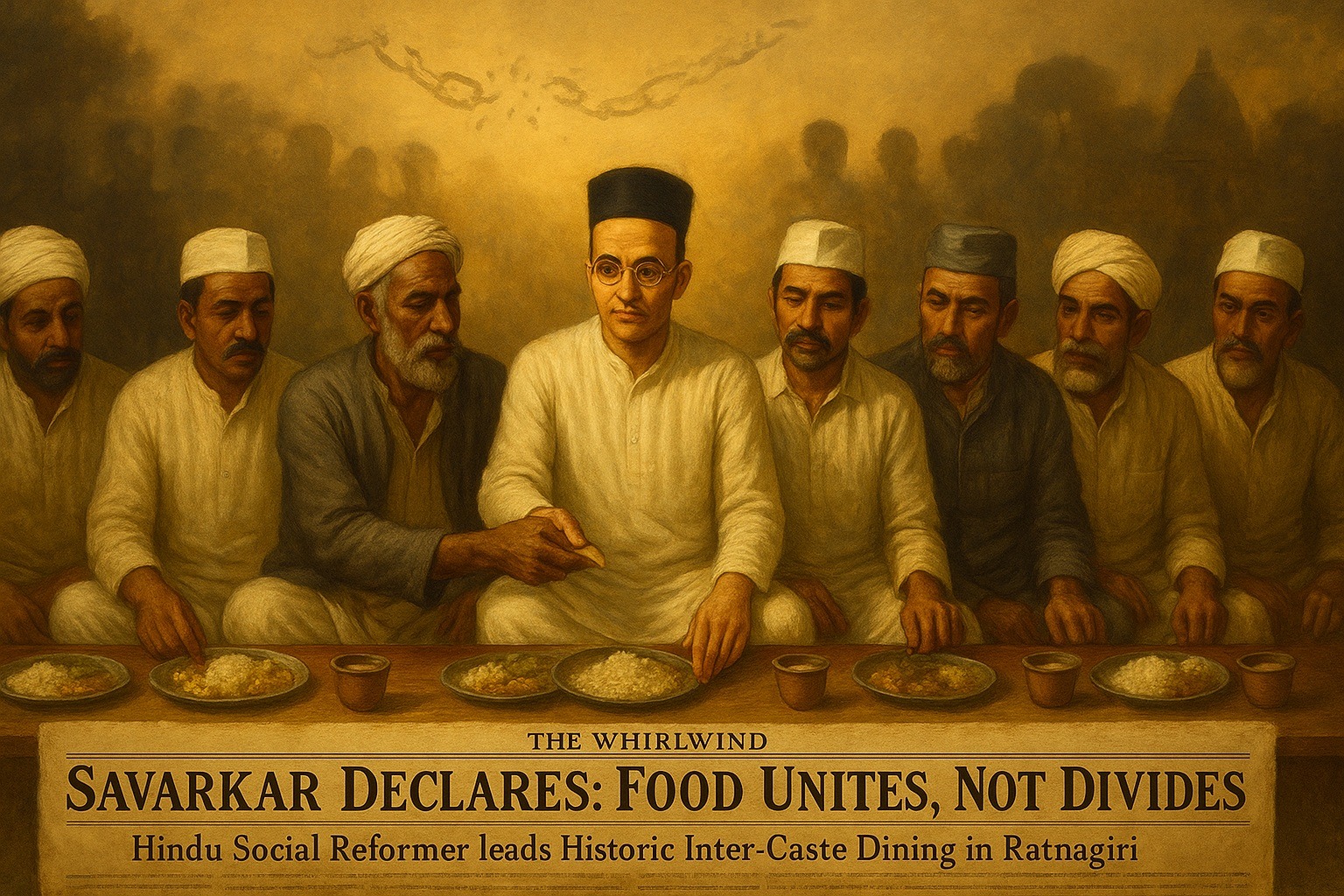Category: Dimensions of Hindutva
-
Economic Dimension of Hindutva, Part 11; Savarkar’s Economic Principles (7/13) Introduction: Economic Development as a Pillar of National Progress Economic development has always stood at the heart of national progress, shaping the strength and sovereignty of a nation. Among the many debates surrounding economic strategy, one of the most enduring concerns the role of the…
-
When Vinayak Damodar (Veer) Savarkar reflected on what holds a nation together, he looked beyond geography or race. For him, true national unity demanded not only shared ideals but also a shared language (a Rashtrabhasha) — a medium through which those ideals could live, circulate, and bind people together. Savarkar viewed communication as the ‘lifeblood…
-
Political Dimension of Hindutva, Part 13 Introduction – A Justification of “Relative Violence” Violence and non-violence have long been central themes in Indian philosophical and political thought. Vinayak Damodar (Veer) Savarkar, a key proponent of Hindutva, presented a unique discourse on the subject, arguing for a pragmatic approach to violence—what he termed “just, relative violence.”…
-
Political Dimension of Hindutva, Part 12 Introduction – Savarkar’s Radical Philosophy of Resistance Few statements in modern Indian political thought are as provocative as Vinayak Damodar (Veer) Savarkar’s declaration that relative non-violence is a virtue, absolute non-violence a crime. This concise yet explosive maxim captures the essence of Savarkar’s departure from the dominant ‘Gandhian ethos’…










